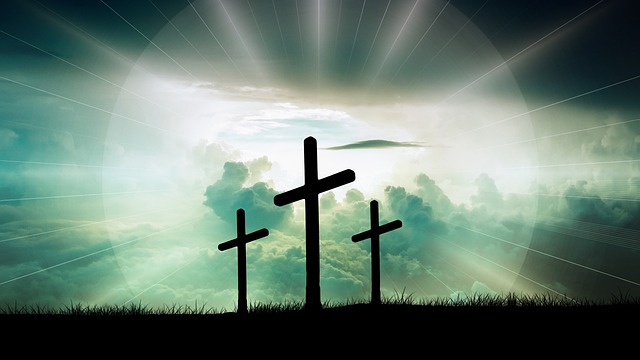Orthodox Christianity and Orthodox Judaism are two distinct religious traditions that have significant differences in their beliefs, practices, and historical development. While both share the term “Orthodox” in their names, they are not directly related or connected to each other. Orthodox Christianity is a branch of Christianity that follows the teachings and traditions of the Eastern Orthodox Church, while Orthodox Judaism is a branch of Judaism that adheres to the traditional interpretation of Jewish law and customs. Despite some similarities in their emphasis on tradition and religious observance, Orthodox Christianity and Orthodox Judaism have distinct theological doctrines, liturgical practices, and cultural influences that set them apart from each other.
Table of Contents
History and Origins of Orthodox Christianity and Orthodox Judaism
Orthodox Christianity and Orthodox Judaism are two major religious traditions that have shaped the lives of millions of people around the world. Both have deep historical roots and rich cultural traditions that have been passed down through generations. In this article, we will explore the history and origins of Orthodox Christianity and Orthodox Judaism, highlighting their similarities and differences.
Orthodox Christianity traces its origins back to the time of Jesus Christ and the early Christian communities. It emerged as a distinct branch of Christianity in the 4th century AD, following the Council of Nicaea. The council was convened to address theological disputes and establish a unified doctrine for the Christian faith. The term “Orthodox” itself means “correct belief” or “right worship,” emphasizing the adherence to the traditional teachings and practices of the early Church.
On the other hand, Orthodox Judaism has its roots in ancient Israel and the teachings of the Torah. It developed as a response to the destruction of the Second Temple in Jerusalem in 70 AD and the subsequent dispersion of Jews throughout the world. Orthodox Judaism places a strong emphasis on the observance of Jewish law, known as Halakha, and the preservation of Jewish traditions and customs.
Despite their different origins, both Orthodox Christianity and Orthodox Judaism share a common commitment to the preservation of tradition and the importance of religious rituals. Both traditions place a strong emphasis on the authority of religious texts and the teachings of religious leaders. In Orthodox Christianity, the Bible and the writings of the early Church Fathers are considered authoritative, while in Orthodox Judaism, the Torah and the Talmud hold a central place.
Another similarity between Orthodox Christianity and Orthodox Judaism is their hierarchical structure. Both traditions have a clergy that plays a crucial role in the religious life of the community. In Orthodox Christianity, the clergy consists of bishops, priests, and deacons, while in Orthodox Judaism, rabbis hold positions of religious leadership and authority.
However, there are also significant differences between Orthodox Christianity and Orthodox Judaism. One of the key differences lies in their understanding of Jesus Christ. Orthodox Christianity views Jesus as the Son of God and the savior of humanity, while Orthodox Judaism does not recognize Jesus as the Messiah and holds different beliefs about the coming of the Messiah.
Additionally, Orthodox Christianity and Orthodox Judaism have different liturgical practices and worship styles. Orthodox Christian worship is characterized by elaborate rituals, icons, and liturgical chants, while Orthodox Jewish worship centers around prayer, study, and the observance of Jewish holidays and rituals.
In conclusion, Orthodox Christianity and Orthodox Judaism have deep historical roots and rich cultural traditions. Both traditions emphasize the importance of tradition, religious texts, and religious leaders. However, they differ in their understanding of Jesus Christ and their liturgical practices. Despite their differences, both Orthodox Christianity and Orthodox Judaism continue to be vibrant and influential religious traditions that shape the lives of their followers.
Beliefs and Doctrines in Orthodox Christianity and Orthodox Judaism

Orthodox Christianity and Orthodox Judaism are two distinct religious traditions that have shaped the lives of millions of people around the world. While they share some similarities, such as a commitment to ancient traditions and a belief in the importance of religious observance, there are also significant differences in their beliefs and doctrines.
In Orthodox Christianity, the central belief is in the Holy Trinity, which consists of God the Father, God the Son (Jesus Christ), and God the Holy Spirit. This belief is rooted in the teachings of the early Christian church and is considered a fundamental doctrine of the faith. Orthodox Christians believe that Jesus Christ is the Son of God who became incarnate to save humanity from sin and death. They also believe in the resurrection of Christ and the promise of eternal life for those who follow him.
Orthodox Judaism, on the other hand, is based on the Torah, the sacred text of the Jewish people. The Torah contains the laws and commandments given by God to Moses on Mount Sinai. Orthodox Jews believe that the Torah is the literal word of God and that it should be followed in every aspect of life. They observe a wide range of religious rituals and traditions, including keeping kosher, observing the Sabbath, and praying three times a day. For Orthodox Jews, the ultimate goal is to live a life in accordance with God’s commandments and to bring holiness into every aspect of their lives.
While both Orthodox Christianity and Orthodox Judaism emphasize the importance of religious observance, there are differences in their approach to salvation and the afterlife. In Orthodox Christianity, salvation is seen as a process of transformation and union with God. It is believed that through faith in Christ and participation in the sacraments, individuals can be saved and attain eternal life. Orthodox Christians also believe in the possibility of repentance and forgiveness, emphasizing the importance of personal responsibility and moral growth.
In Orthodox Judaism, salvation is not seen as an individualistic concept but rather as a collective one. The focus is on the covenant between God and the Jewish people, and the belief that by following God’s commandments, the Jewish people as a whole can achieve salvation. The afterlife is not a central focus in Orthodox Judaism, with more emphasis placed on living a righteous life in the present and fulfilling one’s obligations to God and the community.
Another key difference between Orthodox Christianity and Orthodox Judaism is the role of religious leaders. In Orthodox Christianity, priests and bishops play a central role in the administration of sacraments and the spiritual guidance of the faithful. They are seen as mediators between God and the people, entrusted with the responsibility of preserving and transmitting the teachings of the church.
In Orthodox Judaism, the role of religious leaders is different. Rabbis are scholars and teachers who provide guidance on matters of Jewish law and interpretation of the Torah. They are not seen as intermediaries between God and the people but rather as educators and mentors who help individuals navigate the complexities of Jewish life.
In conclusion, while Orthodox Christianity and Orthodox Judaism share some common beliefs and practices, there are significant differences in their doctrines and approaches to salvation. Orthodox Christianity emphasizes the belief in the Holy Trinity and the importance of faith in Christ for salvation, while Orthodox Judaism focuses on the observance of God’s commandments and the collective covenant between God and the Jewish people. Understanding these differences can help foster greater respect and appreciation for the rich diversity of religious traditions in our world.
Worship Practices and Rituals in Orthodox Christianity and Orthodox Judaism
Orthodox Christianity and Orthodox Judaism are two distinct religious traditions that have their own unique worship practices and rituals. While both religions share a common foundation in the Old Testament, they differ in their interpretations and approaches to worship. In this article, we will explore the worship practices and rituals of Orthodox Christianity and Orthodox Judaism, highlighting their similarities and differences.
In Orthodox Christianity, worship is centered around the Divine Liturgy, which is the main form of worship. The Divine Liturgy is a sacred service that includes prayers, hymns, scripture readings, and the Eucharist. It is conducted by a priest or bishop and is believed to be a participation in the heavenly worship of God. The liturgy is characterized by its rich symbolism and use of incense, icons, and sacred music. The congregation actively participates in the liturgy through singing, responding to prayers, and receiving communion.
Similarly, in Orthodox Judaism, worship is centered around the synagogue and the study of the Torah. The synagogue is a place of prayer, study, and community gathering. The main form of worship in Orthodox Judaism is the prayer service, which is conducted three times a day. The prayer service consists of reciting prayers from the Siddur (prayer book), reading from the Torah, and delivering sermons. The synagogue is also a place for celebrating holidays and life cycle events, such as bar mitzvahs and weddings.
While both Orthodox Christianity and Orthodox Judaism emphasize the importance of communal worship, there are some notable differences in their worship practices. In Orthodox Christianity, the use of icons is a significant aspect of worship. Icons are religious images that are believed to be windows into the divine realm. They are venerated and used as aids in prayer and meditation. In contrast, Orthodox Judaism strictly prohibits the use of any graven images or idols in worship. The focus in Orthodox Judaism is on the study of the Torah and the observance of mitzvot (commandments).
Another difference lies in the role of clergy in worship. In Orthodox Christianity, the clergy, particularly the priest or bishop, play a central role in leading the worship service. They are responsible for consecrating the Eucharist, delivering sermons, and administering sacraments. In Orthodox Judaism, while there is a rabbi who leads the congregation and provides guidance, the emphasis is on the participation of the entire community in worship. The Torah reading and prayers are often led by members of the congregation, and the rabbi’s role is more focused on teaching and interpreting Jewish law.
Despite these differences, both Orthodox Christianity and Orthodox Judaism place a strong emphasis on the importance of worship as a means of connecting with the divine. They both view worship as a way to express devotion, seek spiritual growth, and foster a sense of community. Whether it is through the Divine Liturgy or the prayer service, both traditions provide a framework for believers to engage in meaningful worship practices and rituals.
In conclusion, while Orthodox Christianity and Orthodox Judaism have their own distinct worship practices and rituals, they share a common goal of connecting with the divine and fostering a sense of community. The Divine Liturgy and the prayer service are central to their worship, with each tradition emphasizing different elements such as icons and Torah study. Despite their differences, both traditions offer believers a rich and meaningful worship experience that is deeply rooted in their respective religious teachings and traditions.
Role of Leadership and Community Structure in Orthodox Christianity and Orthodox Judaism
Orthodox Christianity and Orthodox Judaism are two distinct religious traditions that have played significant roles in shaping the lives of their followers. While both share a commitment to traditional beliefs and practices, they differ in many aspects, including their leadership structure and community organization.
In Orthodox Christianity, the role of leadership is primarily held by the clergy, specifically the bishops and priests. Bishops are considered the successors of the apostles and are responsible for overseeing multiple churches within a specific geographic area known as a diocese. They are seen as the spiritual shepherds of their flock, guiding and teaching the faithful. Priests, on the other hand, serve as the spiritual leaders of individual parishes, providing pastoral care and administering sacraments.
The hierarchical structure of Orthodox Christianity ensures a clear chain of command and accountability within the church. Bishops are elected by a council of other bishops and are expected to uphold the teachings and traditions of the faith. This centralized leadership allows for consistency in doctrine and practice across different regions and ensures the unity of the church.
In contrast, Orthodox Judaism has a more decentralized leadership structure. While there is no central authority figure like a bishop, rabbis play a crucial role in guiding the community. Rabbis are scholars and teachers who have undergone extensive religious training and are well-versed in Jewish law and tradition. They serve as spiritual advisors, educators, and arbiters of Jewish law.
Orthodox Jewish communities are often organized around synagogues, which serve as the focal point for religious activities and communal gatherings. Each synagogue may have its own rabbi, who is responsible for providing spiritual guidance to the congregation. However, unlike in Orthodox Christianity, there is no formal hierarchy among rabbis, and each synagogue operates independently.
The decentralized nature of Orthodox Judaism allows for a greater degree of diversity and flexibility within the community. Different synagogues may have slightly different customs and practices, reflecting the unique traditions and preferences of their congregants. This diversity is seen as a strength, as it allows for a more personalized and meaningful religious experience.
Both Orthodox Christianity and Orthodox Judaism place a strong emphasis on community and communal worship. In Orthodox Christianity, the church is seen as a sacred space where believers come together to worship, receive sacraments, and participate in the liturgy. The community plays a vital role in supporting and nurturing the faith of its members, providing a sense of belonging and shared identity.
Similarly, in Orthodox Judaism, the synagogue serves as a gathering place for communal prayer, study, and celebration. The community plays a central role in the observance of Jewish rituals and traditions, providing support and guidance to individuals and families. The synagogue becomes a hub of social and religious activities, fostering a sense of unity and belonging among its members.
In conclusion, while Orthodox Christianity and Orthodox Judaism share a commitment to traditional beliefs and practices, they differ in their leadership structure and community organization. Orthodox Christianity has a centralized leadership with bishops and priests guiding the faithful, while Orthodox Judaism has a more decentralized structure with rabbis serving as spiritual leaders. Both traditions place a strong emphasis on community and communal worship, providing a sense of belonging and support to their followers.
Conclusion
In conclusion, Orthodox Christianity and Orthodox Judaism are two distinct religious traditions with significant differences in their beliefs, practices, and interpretations of scripture. While both emphasize the importance of faith and adherence to religious laws, Orthodox Christianity places a greater emphasis on the divinity of Jesus Christ and the concept of salvation through his sacrifice. On the other hand, Orthodox Judaism emphasizes the observance of Jewish laws and traditions as a means of connecting with God and maintaining a covenantal relationship. These differences in theology and religious practices contribute to the unique identities and practices of Orthodox Christianity and Orthodox Judaism.
For licensing reasons, we must provide the following notice: This content was created in part with the help of an AI.



